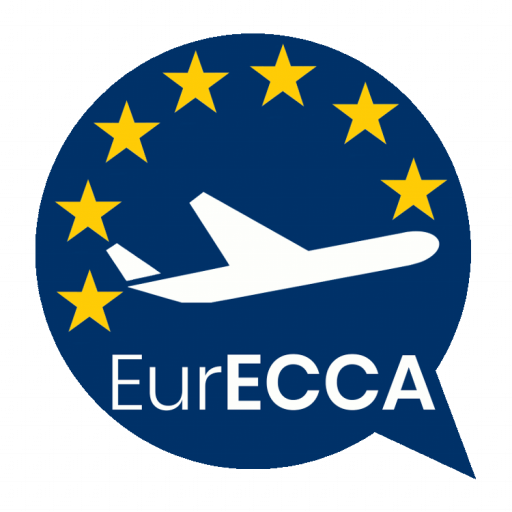Social Dumping: “A right ends where abuse begins”
EurECCA WELCOMES AND SUPPORTS THE JUDGEMENT OF THE COURT OF JUSTICE OF THE EUROPEAN UNION ON POSTED WORKERS SOCIAL SECURITY RIGHTS
The court of justice of the European Union decides to follow the opinion of the General advocate in which it considers, first, that an E 101 certificate is not binding in a court of the host Member State where that court finds that the certificate was obtained or invoked fraudulently and, second, that, in such circumstances, that court may refrain from applying the E 101 certificate.
Today, some airlines in Europe are using the A1/E101 certificate with impunity to permanently escape the social contributions they are due in the country where their cabin crew has their home base and therefore A1/E101 is used as a tool for an economic optimization strategy that constitutes and leads to a form of unfair competition.
EurECCA considers this judgement, together with the earlier judgement on Home Base, a victory for European Crew members. It promotes fair competition and prevents a race to the bottom, thus creating better working conditions and better social protection.
“A right ends where abuse begins”. That maxim used by the professor of French law Marcel Ferdinand Planiol illustrates well the issue facing the Hof van Cassatie (Court of Cassation, Belgium) in the present case, which is one of a series that has given rise to a now well-established body of case-law on the binding nature of the E101 certificate, which certifies that a worker moving within the European Union is covered by the social security scheme of the Member State to which the issuing institution belongs.
The Court has consistently held that, as long as it has not been withdrawn or declared invalid, an E 101 certificate issued by the competent institution of a Member State pursuant to Article 11(1) of Regulation (EEC) No 574/72 laying down the procedure for implementing Regulation (EEC) No 1408/71 takes effect in the internal legal order of the Member State to which the employee goes in order to work and, therefore, binds the institutions of that Member State. It follows that a court of the host Member State is not entitled to scrutinise the validity of an E101 certificate in the light of the background against which it was issued.
By its request for a preliminary ruling, the referring court is essentially asking the Court whether that case-law applies where a court of the host Member State finds that an E 101 certificate was obtained or invoked fraudulently.
In the framework of the establishment of the Common Market, regulations for the coordination of social security schemes have been issued at the Community level to promote the mobility of workers.
Regulation EC No 883/2004 of 30 April 2004 establishes a principle of “uniqueness of legislation”, from which it follows that each worker, including in a situation of intracommunity mobility, must be subject to only one social security scheme.
Posted workers for a temporary period to another Member State who fulfill the conditions laid down in the Regulation can work with an irrefragable certificate, not able to be refuted or disaproved, known as A1 (formerly E101) stating that they are maintained in the social security scheme in their country of origin. With this binding certificate, posted workers and their employers are exempted from the payment of social security contributions in the host country.
If the scope attached to Form A1 (formerly E101) is, in the name of the founding principles of the European Union adapted to normal posting situations, it is however unacceptable that this document can irrefragably cover situations of fraud or of abuse of rights and promote unfair competition inner Europe.
With this ruling, the CJEU introduces the notion of fraud as a reason to put an end to the irrefragability principle inherent to those certificates and the right for a member state to disregard those certificates:
Article 14(1)(a) of Council Regulation (EEC) No 1408/71 of 14 June 1971 on the application of social security schemes to employed persons, to self‐employed persons and to members of their families moving within the Community, in the version amended and updated by Council Regulation (EC) No 118/97 of 2 December 1996, as amended by Regulation (EC) No 631/2004 of the European Parliament and of the Council of 31 March 2004, and Article 11(1)(a) of Council Regulation (EEC) No 574/72 of 21 March 1972 laying down rules for the application of Regulation No 1408/71, as amended and updated by Regulation No 118/97, must be interpreted as meaning that, when an institu- tion of a Member State to which workers have been posted makes an application to the institution that issued E 101 certificates for the review and withdrawal of those certifi- cates in the light of evidence, collected in the course of a judicial investigation, which supports the conclusion that those certificates were fraudulently obtained or relied on, and the issuing institution fails to take that evidence into consideration for the purpose of reviewing the grounds for the issue of those certificates, a national court may, in the context of proceedings brought against persons suspected of having used posted work- ers ostensibly covered by such certificates, disregard those certificates if, on the basis of that evidence and with due regard to the safeguards inherent in the right to a fair trial which must be granted to those persons, it finds the existence of such fraud.
In that sense, this ruling follows the opinion of the General advocate:
« a court of the host Member State may disapply an E101 certificate issued by the institution designated by the competent Member State authority under Article 14(1)(a) of Regulation No 1408/71, as amended by Council Regulation (EEC) No 1390/81 of 12 May 1981, where that court finds that that certificate was obtained or invoked fraudulently. »
see also: http://curia.europa.eu/juris/celex.jsf?celex=62016CJ0359&lang1=fr&lang2=EN&type=TXT&ancre=
EurECCA represents, protects and defends the rights and needs of cabin crew all over Europe


